CAROLINA: I started listening to punk when I was 13 years old. For me, it was a very nice thing because I, like many teenagers, was very angry with everything. I came from a difficult family, from a very difficult father. I would say that I have a lot of ‘daddy issues’, I’m not ashamed to say it <haha>. But I found a refuge that helped me not want to die, because I found in the voices – for example, of Flema by Ricky Espinoza, or Eskorbuto by Juanma Suárez, Animales Muertos, all of that – a refuge. I knew I felt strange and I didn’t know how to explain it, but they did, and I identified with that. Feeling that someone understands you makes you feel less alone; punk made me feel less alone.
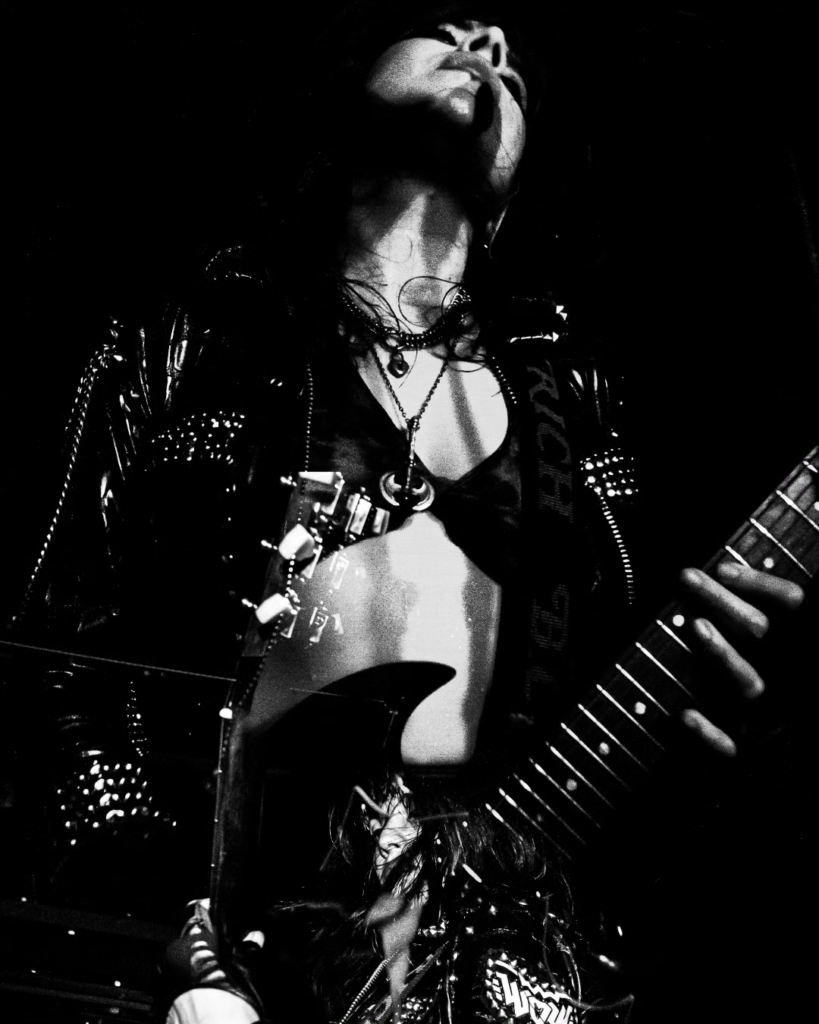
I found in those voices a friend talking to me, or explaining and rationalizing the things that I felt and that I didn’t know how to say, but that they knew how to communicate. On top of that, all of this was accompanied by a rhythm that was melodic, but at the same time rotten; deep, but simple, and most importantly, fast. It gave me a lot of energy and made me happy.
I always liked to sing. I would lock myself in my room to smoke joints when I was 14, singing by myself to music at full volume. I got my first guitar when I was 18, but no one wanted to play in a band with me because they didn’t know I could play. I tried to make two bands in Chile; They didn’t work. Later, at around 22, I started listening to a lot of metal, a lot of 80’s heavy metal and black metal.
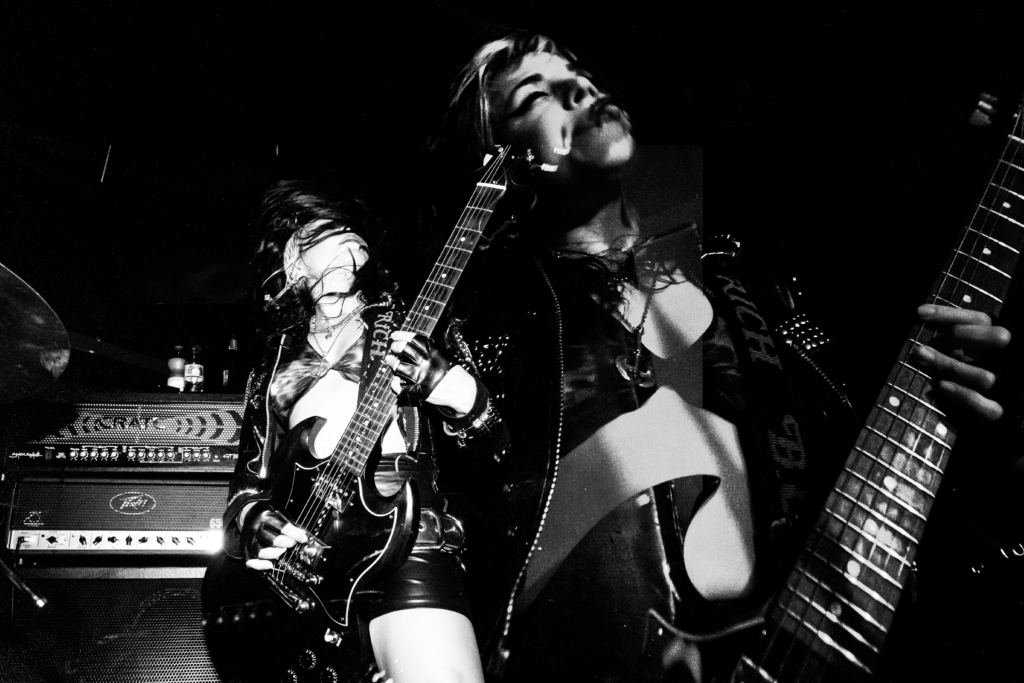
Around 23, 24, a very big depression hit me. I studied audiovisual communication in Chile and when I finished, I worked a little in that field, but I left the job I had because I couldn’t stand anything in my life anymore. I was angry (still).
I took a trip. I spent about a year traveling, volunteering here and there, working anywhere. I ended up in the South of Chile – but in the extreme south, the edge of the world – Patagonia.
Within that depression? Uncertainty: I don’t know what the fuck I’m going to do. I stayed in a very small half-isolated town, but I was comfortable with everything I had.
I stayed there working for about seven months. And then Joaquín arrived; we met when he was going to steal coffee and food from the place where I worked. We began to form a super close friendship. He played guitar and sang since he was 11 years old, he was very good. He learned to play more traditional Latin American music and all those things, some of which were complex for me. But he played everything and made it look super easy, which was inspiring.
One day we traveled about three hours to buy a guitar… From there, we started playing every day, because in that town, there was nothing, absolutely NOTHING, to do. It was a precious little town of pure nature, but it was very boring. So I had a lot of time to play and sing after work. I think the path I took with guitar, if it had not been for Joaquín, would have taken me much longer than it did.
After that it became much easier for me to play and sing. There in that town, I bought my ticket to come here to live in Europe. Then I learned to play more complex and faster riffs, little by little I had notions of composition and all that.
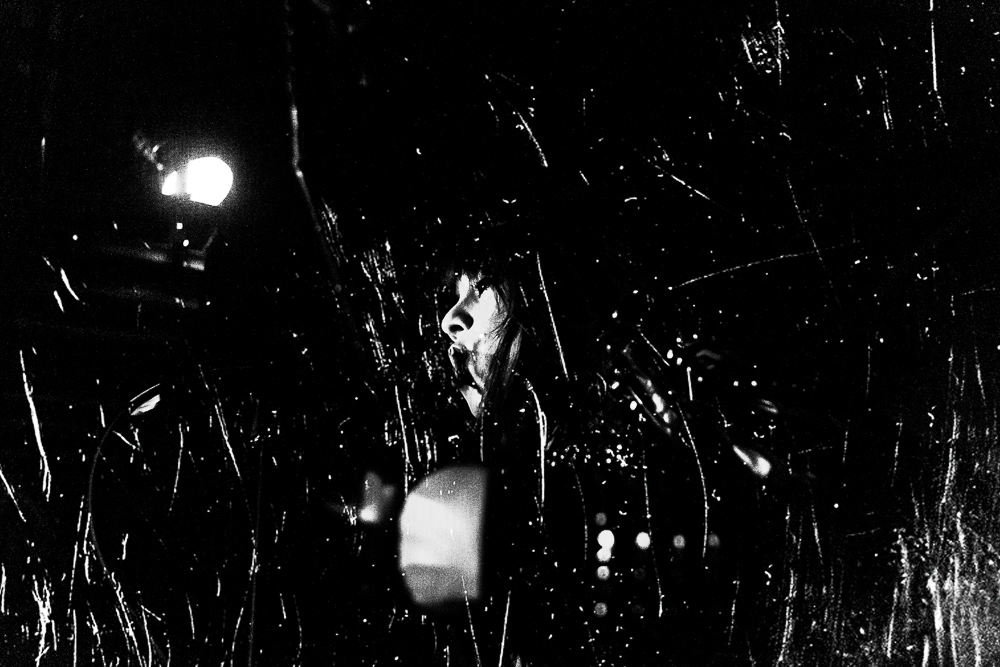
I arrived in Barcelona with the idea of an EP. I contacted Marc and we rehearsed, but COVID came; life went to shit and I no longer had money or a house, so I returned to Chile. I started recording the second EP with Benjamin, who was encouraged to collaborate. The first year there, I just worked and composed. I was living in a town on the coast, where my grandparents were from, El Quisco. By then, the scene and the people had obviously changed a lot.
The people I knew from my time were no longer there, or were already in another scene, leading “adult” lives, or they were canceled <haha>, whatever. I started organizing concerts because no one invited us to play; I didn’t know many people for the same reason. So I organized and played, I invited more bands to understand what was happening in the scene locally at that time. I made some very nice friends and there were/are som very good bands like Argh, Radio Siniestra, Deceso Por Causa Desconocida, etc.
My favorite concert was at an abandoned train station that was converted into a squat & cultural center. And while we were playing on the platform, the train passed. It was cool, except that you had to be careful with drunk people who fell asleep on the train line.
But yes, it was a process of starting from scratch. It was a process of sustaining myself again in the noise, in the composition. It makes me very happy to play guitar, and to study guitar at home alone when no one sees me.
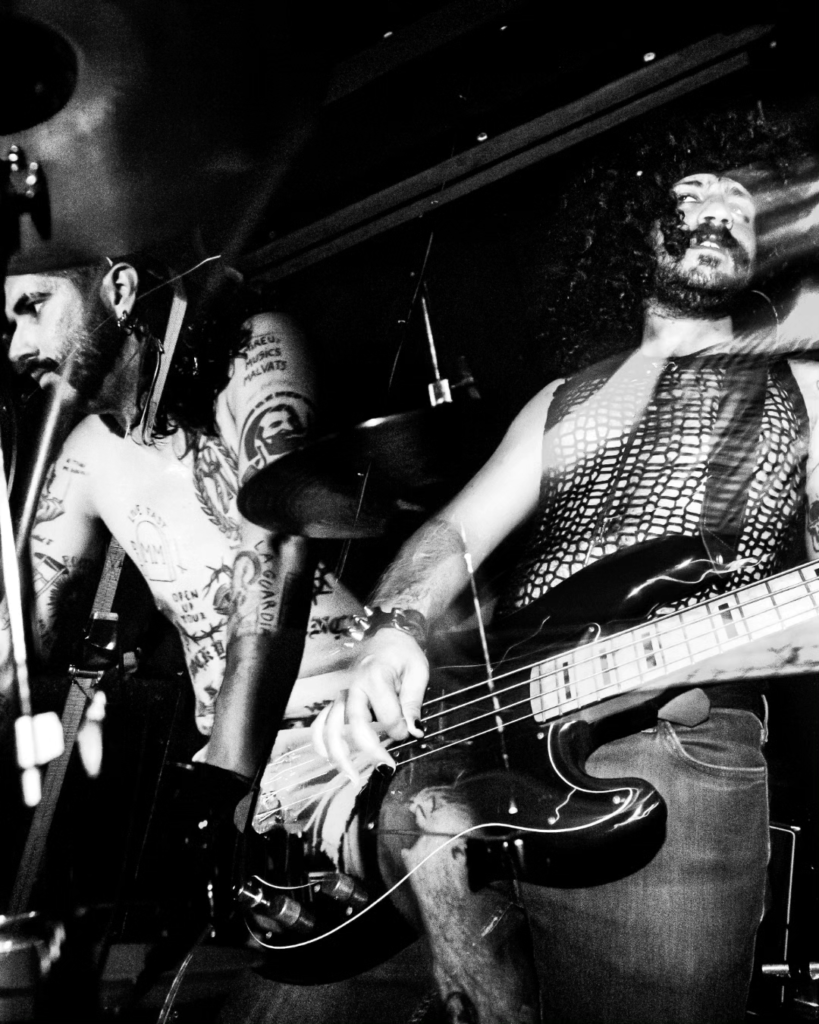
A record label from France helped us a lot in spreading the noise; Jon from Symphony of Destruction contacted us from the first EP. From there, one day someone hit me up from the United States – Jorge wrote to me to go and tour there. At first, I didn’t believe it because I thought it was too big of a chance and was way too much luck. And I didn’t know this person at all – obviously, there’s going to be distrust when someone from another country wants to invite you to them and take you around. But in the end, everything worked out. That’s how it happened, all online. We had some dates with Rixe that I loved, and some dates with Warthog. These are incredible things that I didn’t think would happen so quickly. Time passed.
Punk and scenes work differently everywhere in the world, right? In South America, DIY works differently than in Europe & the United States, because they have more resources. In Chile, one plays with what they can, one plays with what there is. And in the end, one is happy to play just the same.
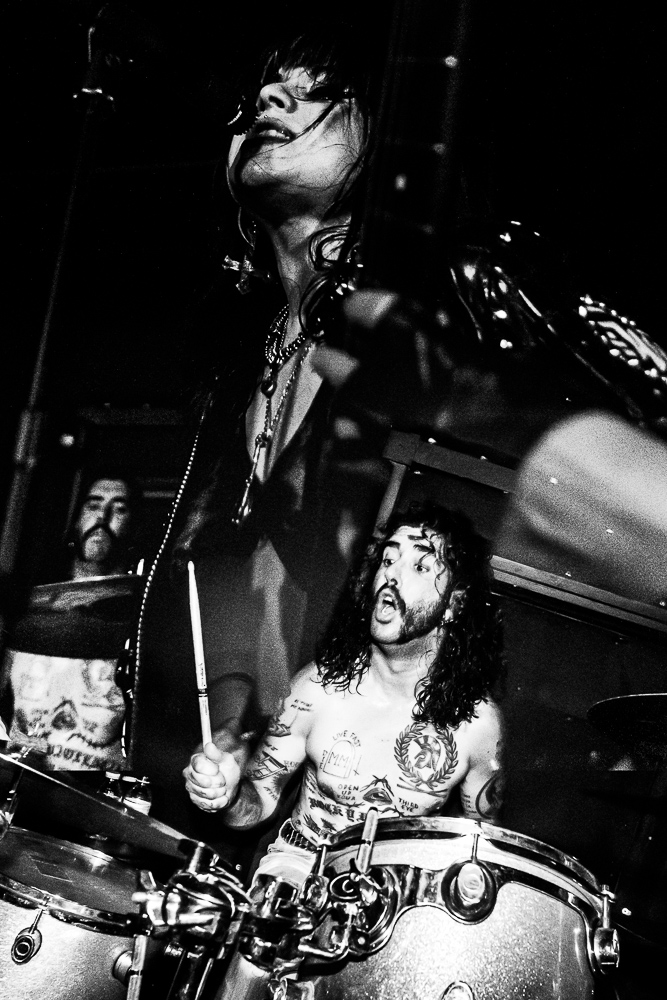
What I like about Chile particularly is that everything is very political. Everyone tries to do a lot of solidarity activities for the political prisoners of the student revolt, which was very relevant. Things are organized to raise funds: solidarity raffles, solidarity bingos, concerts, etc. And direct action.
In South America, it is out of the question to think that you are going to make money from punk. That does not exist and the concept of a noise spectacle does not exist. It’s spontaneous, it’s honest; I don’t know how to explain… I feel that there, the real love that one has for things is tested, and why one does things too.
DIY is putting love into things… That is, you are your composer, you are your organizer, you are the one who organizes your tours, you make your covers, etc. And it is dedication, but it is honest and you learn a lot. The band has taught me a lot of things along the way.
**Desire is nothing without action, obviously. Most of the time it is like that.
What is it like to be a woman in punk? Well, it’s definitely easier than being a woman in metal <hahaha>. But hey, people still question you more than when you’re a dude, saying things like “she’s there because she’s pretty,” or “someone’s girlfriend,” or because she shows her ass, etc. When it comes to playing, a lot of times people mess with my pedals or my amplifier without asking me, and leave the sound as they think it would sound best, to try to help me. Sometimes it does help. But sometimes people assume too much, and from where do they assume? Many times they end up f*cking things up more <hahaha>. Since then I’ve learned more about equalization & amps & pedals to help myself, and explain myself better, so people assume less about what I know and what I don’t. And this has happened on all continents <haha>. It happened once in a rehearsal room. The person who rented the room got into my pedals without talking anyone, it just made me laugh… And I asked him what the hell are you doing? But in good tone.
At a gig we had recently in Rennes, France, a person was up front in the front row saying that we sounded terrible many times, even though the sound person corrected the sound…
So I said, “Hey, are you a sound engineer or what?” He got so upset that he came up to us four times to say that we sounded horrible, how disgusting.
He said it to all of us until one point the drummer grabbed him by the neck: she told him, “Either you shut up or we’ll hit you because we’re already fed up with an opinion we’re not asking for.” His friend took him. I tell this story because I feel that if that person had seen a band of four guys, I don’t think he would have come up to us three or four times to tell us that it sounded bad. His reaction might have been different.
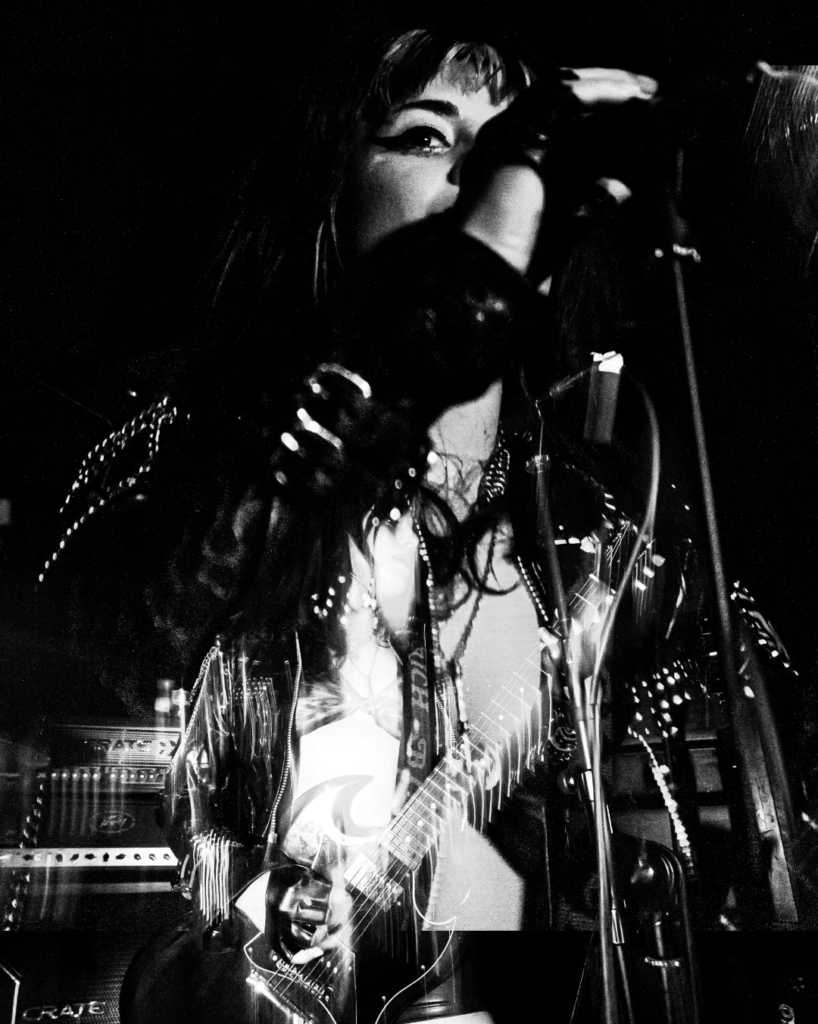
Maybe I feel like that makes me a little sad. But just because there are stupid people like that or people who question everything, I’m not going to stop doing what I like.
I would like more trans people and queers and girls to make music and for us to be the majority, or eventually for the space to be shared more equitably. But regarding that, I think that the female presence is more often assumed or questioned less. Above all, it’s appreciated that less is questioned about why a girl does what she does.
When I was 23, a guy told me, “Caro, it’s hard to sing and play, I don’t know if you can.” And recently a bassist from Abyecta told me, “Learn to play.” Honestly, hearing those things only make me want to continue doing what I do more.
I like to think of empathy and solidarity as the best weapon to survive in a world that moves very fast.
Moving from Patagonia to the “first world” in 2018 was abrupt, I came from a place where time does not pass, to a context where people do not stop doing things. Many times, the overactive ego does not give much space or time to empathy or questioning.
The exercise of thinking and feeling from the individual to the collective is more important than ever. There is a lot of talk about individual empowerment, but how does that contribute to everyone else?… I say this because really, yes, I enjoy playing and traveling, but that doesn’t changes anyone’s life – the world is falling to pieces and the only thing that makes sense now more than ever is solidarity. On our latest tour my favorite gig was the last one in Barcelona, which was a charity show for the people affected by the February 3 fires in Chile. I have the privilege of making noise now, but who does that help? We can use what we like to do for something more collective. That’s what South American punk taught me, the ollas comunes (communities banding together to solve the basic need to eat, something similar to a soup kitchen, but much more self-managed/characterized independently. Mainly in the seizure of land during times of dictatorships. Direct translation: communal pot) in the revolt and the fires… People helping each other and organizing themselves. Friends of friends lost their homes in the fire. A couple of months passed and people already forgot about it, but the problem is still there. We already know that governments are worth sh*t; we only have ourselves.